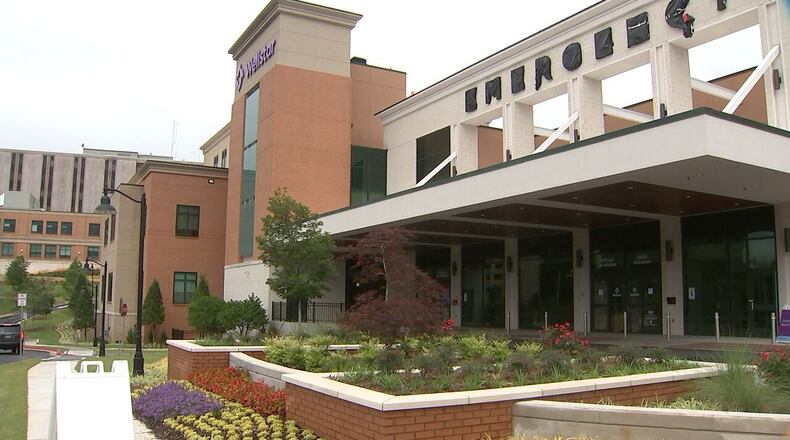Wellstar Health System, one of the largest hospital operators in Georgia, is now becoming potentially one of the largest health tech funders in the state.
Catalyst by Wellstar, the system’s innovation arm, announced Thursday the launch of a $100 million venture fund to invest in early-stage health care startups around the country.
The move comes just months after Wellstar closed two metro Atlanta hospitals that largely served poor and Black patients, citing financial reasons, inspiring a large backlash. Wellstar is also negotiating to take over Augusta University Health System.
“Looking toward the future of health care, we know that the only path out of, or one of the only paths out of, the challenges that we have all faced is innovation,” Dr. Hank Capps told The Atlanta Journal-Constitution about the fund. Capps is the president of Catalyst by Wellstar and a top Wellstar executive.
Wellstar is providing the full $100 million, Capps said. The health system considers the fund as a non-traditional part of its investment strategy. He added that no money was diverted from patient care. The venture funding is a portion of dedicated investment capital and any revenue from the fund will be treated as non-profit revenue, as long as it is used to support Wellstar’s charitable mission.
The $100 million will be deployed over the next five years. Catalyst plans to invest directly in more than 50 startups, and indirectly through other venture funds in about 150 more companies.
Catalyst has already invested more than $1.8 million in four companies, none of which are Georgia-based. The businesses range from a maternal health startup to an antimicrobial LED light manufacturer. Wellstar is also a customer of some of the businesses it has invested in.
“This is a great first step,” said Maria Thacker-Goethe, CEO of Georgia Bio, a non-profit that promotes the state’s life sciences industry. “But the real work now begins for Wellstar, to those that they will have a meaningful impact on the health of patients.”
Investment gives companies what they need to get started, but they also need mentoring, support and guidance they can only get from an expert network, she said.
Georgia is among the states with the worst health outcomes, but it is also home to tremendous tech resources, Thacker-Goethe said. “Atlanta has a unique opportunity to be a leading city — maybe the leading city — at the intersection of biopharma and digital health.”
Ann Holder is founder and CEO of Marani Health, a maternal health startup that is one of the first four companies in which Catalyst has invested.
Credit: spec
Credit: spec
“The fact that Wellstar joined in on this journey for us is really important,” Holder said. Catalyst invested $475,000 in the startup’s most recent fundraising round. Holder said she plans to use the funding for Marani’s digital health platform for prenatal and postpartum care, finishing FDA clearance of their fetal monitoring device and continued product development.
Catalyst has also partnered with Atlanta organizations to deploy some of its venture funding. When Catalyst launched two years ago, it announced it was investing in Engage, the venture fund that pools and invests money from corporate partners. Cox Enterprises, which owns The Atlanta Journal-Constitution, is one of Engage’s partners.
Catalyst invested $3 million in Engage at launch, Capps said, adding Catalyst will continue to be involved in Engage and similar groups.
Catalyst is also partnering with Goodie Nation, a non-profit community for diverse founders, investors and experts. Around 20% of the companies in Goodie Nation’s network are health care startups, said Joey Womack, founder and CEO of the non-profit. Catalyst will consider investments in some of the Goodie Nation founders, and one of Catalyst’s leaders is also a mentor for the non-profit.
“I think [the Catalyst fund] helps to cement Atlanta’s place in terms of leadership in the innovation space and in health,” Womack said. Atlanta has attempted to leverage institutions like the Centers for Disease Control and Prevention to become a global health leader.
“But I think the capital was the missing piece,” Womack said.
Closures inspire backlash
Wellstar’s decision last year to close Atlanta Medical Center and the emergency room and regular hospital beds at at Atlanta Medical Center South in East Point ignited a firestorm. Both Fulton County facilities served disproportionately lower-income and Black patients.
Wellstar has said the facilities were not “financially sustainable.” In response, elected leaders announced two federal complaints against the provider.
Credit: HYOSUB SHIN / AJC
Credit: HYOSUB SHIN / AJC
According to the most recent financial documents Wellstar filed with the state, it put the cost of indigent and charity care at $308.6 million for both AMC locations. Some health experts and local officials have expressed skepticism about how the estimate was calculated.
Wellstar has said it continues to provide huge amounts of uncompensated care in its hospitals statewide, and is the largest provider of charity care in the state.
Still, Wellstar reported that it had $2.8 billion in net assets in its latest financial report from September 2022, raising questions about why the system needed to close the AMC hospitals.
Like most nonprofit hospital systems, Wellstar’s charity designation relieves it from having to pay federal, state and local taxes.
State legislators, Fulton County Commission Chairman Robb Pitts and other local leaders in March filed two federal complaints stemming from the AMC closures. One asked the IRS to investigate whether Wellstar should maintain its nonprofit status. The other document asked the U.S. Department of Health & Human Services’ Office of Civil Rights to investigate whether the hospital closures violate Title VI of the 1964 Civil Rights Act, and if so, to make Wellstar “redress the harm to the community.”
Responding to questions about the necessity of closing the two AMC facilities, the health system said “Wellstar is a nonprofit organization, and the health system’s net revenue is reinvested into our mission. We must operate responsibly.”
The Atlanta Journal-Constitution and Report for America are partnering to add more journalists to cover topics important to our community. Please help us fund this important work at ajc.com/give
Keep Reading
The Latest
Featured





